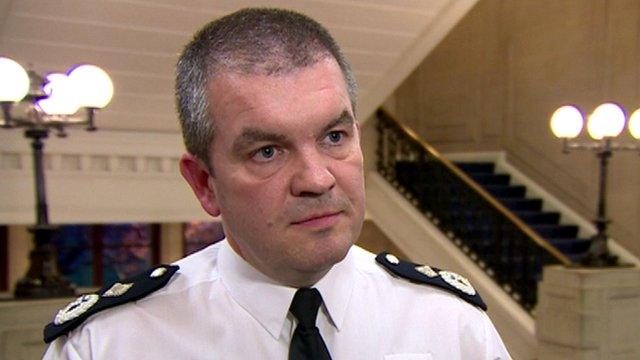Rape investigations 'overwhelming burden' on Met Police
- Published
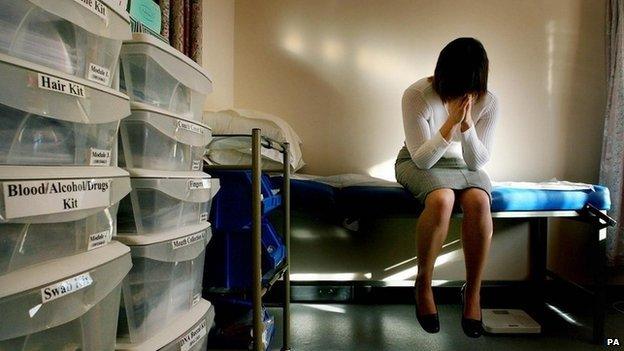
The review found a 68% rise in rape and penetrative offences recorded by the Met Police from 2005-6 to 2013-14
Improvements need to be made to the way officers and prosecutors handle rape complaints, an independent review has found.
The recommendation follows a report into the Met Police that highlighted an "overwhelming burden" on officers.
Report author Dame Elish Angiolini also called for legal amendments so if a person is severely intoxicated they lose the capacity to consent to sex.
The Met said the report "shines an honest light" on their failings.
The review found a 68% rise in rape and penetrative offences recorded by the Met from 2005-6 to 2013-14, but there was only a 17% increase in offences charged within that time, the figures show.
Dame Elish said: "Some of the recommendations will require a willingness to undertake radical change in the approach to these cases."
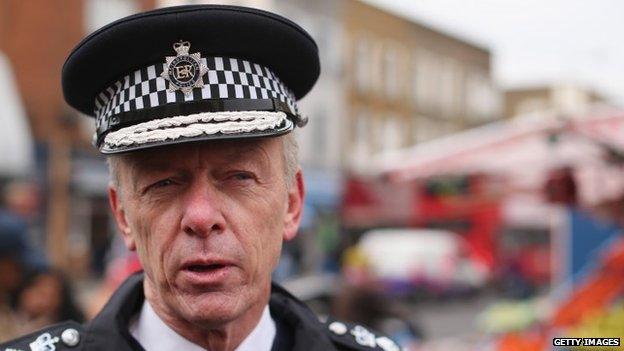
Sir Bernard Hogan-Howe said the report "shines an honest light" on how the system needs to change
The review, entitled Report of the Independent Review into the Investigation and Prosecution of Rape in London, external, said decisions on whether to charge people were often being made by officers without any advice from the Crown Prosecution Service (CPS), which the author described as "of concern".
The 46 recommendations, which address areas including resourcing, improved training, enhanced victim care and changing the law regarding alcohol and consent, were made after discussions with rape victims and officers over the course of a year.
Dame Elish also states the system risks being "overwhelmed" by increased reporting of rape.
The report states: "Whatever the reason, it is clear that the increase in reporting is putting an overwhelming burden on staff and concern is expressed about the Metropolitan Police Service's ability to effectively manage its increasing workload."
Caseload 'dangerous'
Members of the force's Sapphire rape investigation team had an average of 15 live cases at one time, the report said.
One officer said the number of cases was "dangerous," while another said the volume of criminal investigations it had to deal with as "virtually nonsensical".
Dame Elish also said the the government would be asked to consider changing sex offence laws so that the impact of severe intoxication - like alcohol intoxication - is embedded in legislation.
Current laws do not provide a definition of whether an alleged victim is "incapable" meaning a jury has to decided if the complainant is so intoxicated they are incapable of granting consent for sex.
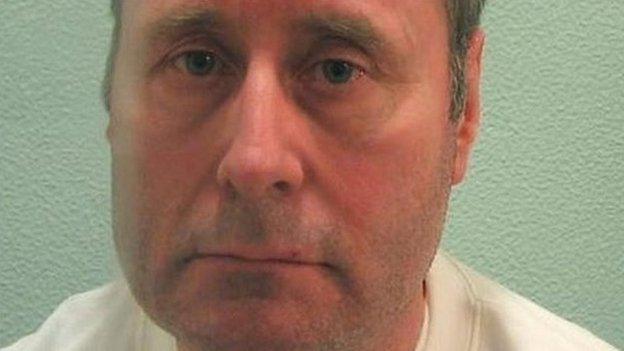
London cab driver John Worboys was linked to sex attacks on more than 100 women
In response, external to the report, Sir Bernard said the Met would give the same priority to sexual offending as it does to counter-terrorism and the force would recruit more officers to deal with the volume of sexual offence reports.
"It's clear we need to do something - we cannot ignore this," he said.
"We have to acknowledge already we have lost 15% of our budget and we believe later this year we will lose a further 15%.
"We will look to government to see if there is anything they can do to support us. But either way, we have got to get better in terms of sexual offence investigations and in terms of reporting."
Sir Bernard has previously said cases like that of London cab driver John Worboys, who was jailed indefinitely after being linked to attacks on more than 100 women, show the Met needs to improve the way it handles rape investigations.
Baljit Ubhey, chief prosecutor for the CPS in London, said: "Many aspects of the recommendations within the review have already begun, but we must never forget that the changes and improvements we make should all be working towards our goals of providing a better service to victims and holding perpetrators to account."
Charity Rape Crisis said the report was encouraging but added that it was "imperative now that encouraging words are translated into real action and cultural change".
- Published9 June 2014
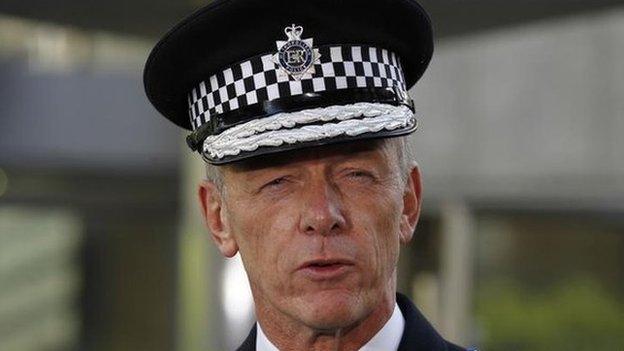
- Published1 May 2014
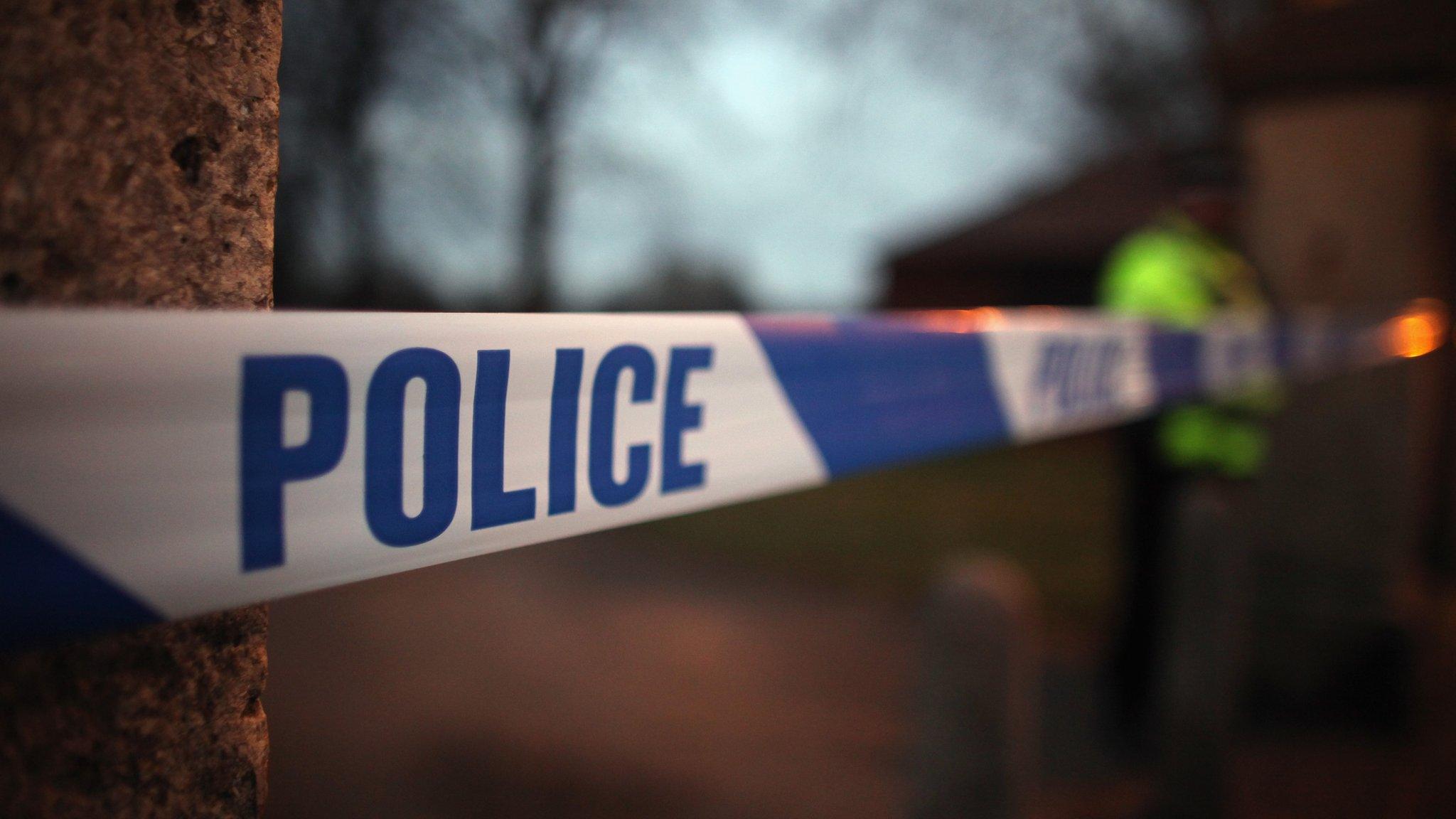
- Published22 April 2014

- Published28 February 2014
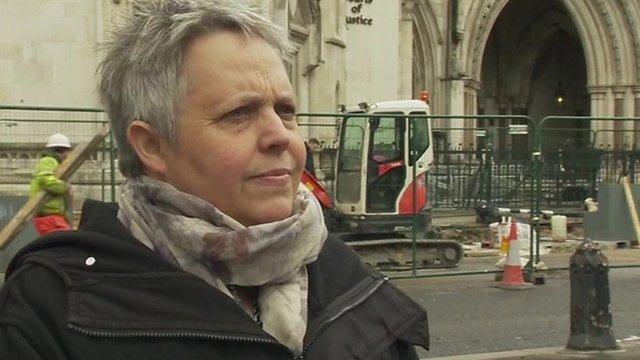
- Published20 February 2014

- Published31 January 2014
